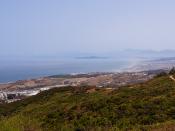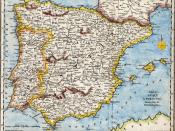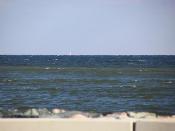In the fifteenth and sixteenth centuries, the Spanish and Portuguese would begin a wave of European overseas expansion that would shape the modern world. This expansion was aimed toward the Western Mediterranean and the Atlantic Ocean instead of towards the East as most European expansion had been in the past. There were numerous reasons for this expansion and for when it took place.
The initial reason was that the economy in Western Europe at the end of the fifteenth century was doing well. When the economy of a nation is prospering, it looks to import and export goods. New markets were needed to sell their goods. Italian merchants had monopolized the trade with the East, so Europeans, especially the Portuguese early on, began to leave the Mediterranean and venture into the Atlantic.
Lack of trade with the East was hardly the only reason for the exploration of the Atlantic. Europe had been experiencing a shortage of silver and had no prospect for a new source.
They new that great amounts of gold existed in Africa, but were not happy with the present system in which they bought gold from Arabs in Northern Africa. The gold went through several middlemen before reaching the Arabs. Like any business, every time the gold changed hands, the price increased. They strove to find the source of the gold so that they could purchase it less expensively. To these ends, the Portuguese began to sail down the western coast of Africa. They established trading posts in the "bulge" of West Africa and eventually sailed around the tip of Africa and established trading posts in India and Southern Arabia.
The Spanish, after having expelled the last of the Muslims from the Iberian Peninsula in 1492, were eager to join in this exploration. An Italian sailor named...


